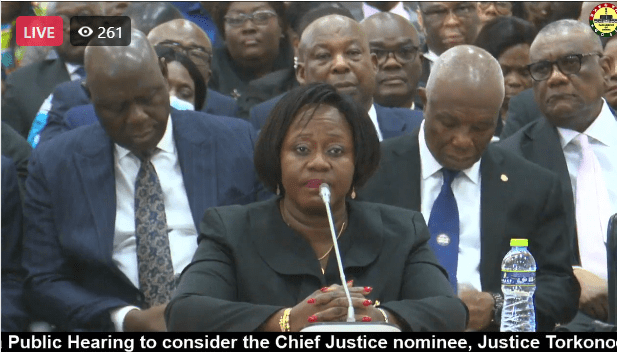During her vetting in Parliament, Chief Justice nominee Gertrude Torkornoo has called for a reconsideration of capital punishment as outlined in the country’s constitution.
Expressing her personal views on the matter, Torkornoo stated that she finds the death penalty to be excessively final.
She urged the legislative body to begin reviewing and discussing the topic.
As a justice of the Supreme Court, Torkornoo acknowledged that if cases involving the death penalty come before the court, it would be her duty to preside over them.
However, on a personal level, she believes that the death penalty should be reevaluated.
When questioned about the firmness required in handing down death sentences, particularly for convicted murderers, Torkornoo emphasized that sentencing is guided by the law, and she cannot dispute it.
She acknowledged that civil society organizations have long advocated for the abolition of the death penalty.
In Ghana, capital punishment is mandatory for certain offenses such as murder, treason, and genocide.
However, the last executions took place in 1993, and since then, there has been a growing international movement against the death penalty.
Amnesty International’s report reveals that as of the end of 2020, there were 160 individuals, including six foreign nationals, under sentence of death in Ghana.
Amnesty International attributes the plight of some death row convicts to factors such as ineffective legal representation.
In June 2021, Member of Parliament Francis Xavier Sosu proposed a bill to remove the death penalty from the Criminal and Other Offences Act, 1960 (Act 29), aiming to abolish the death penalty for most capital offenses under national legislation.











































